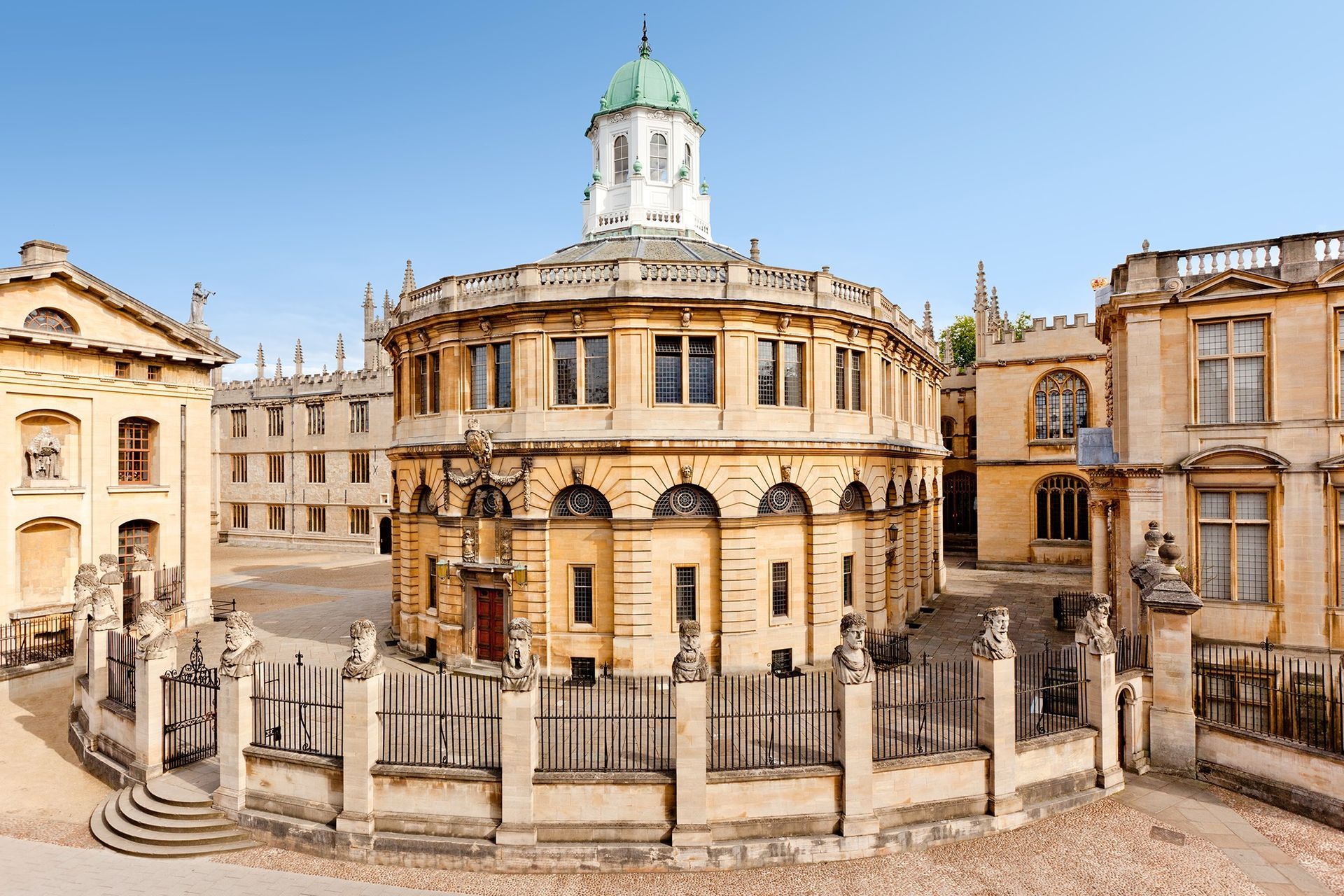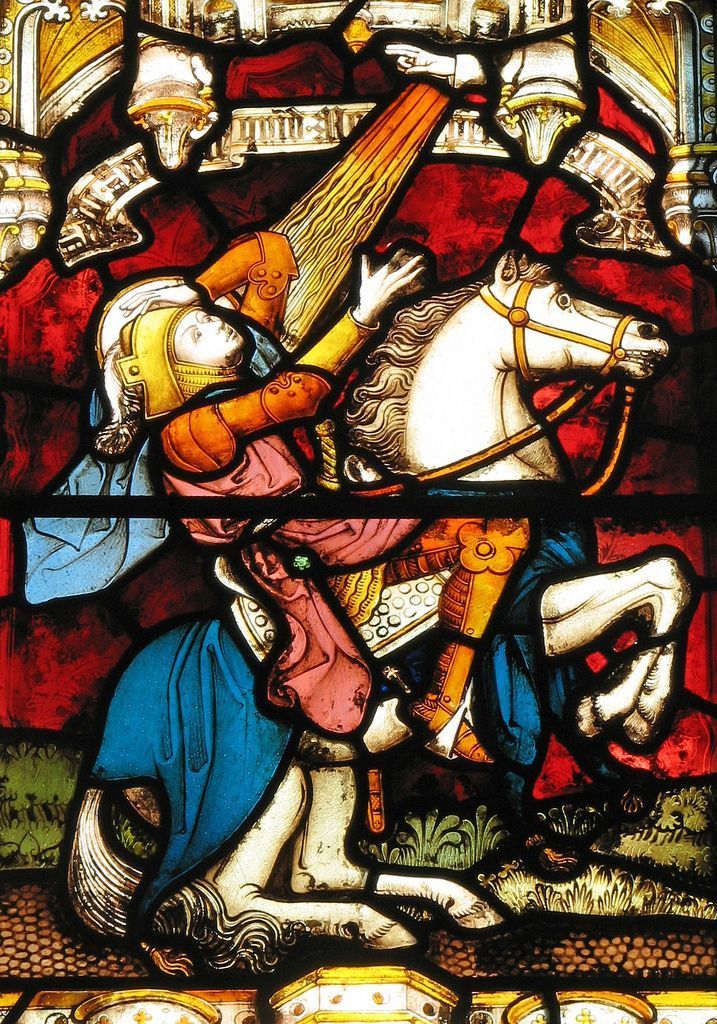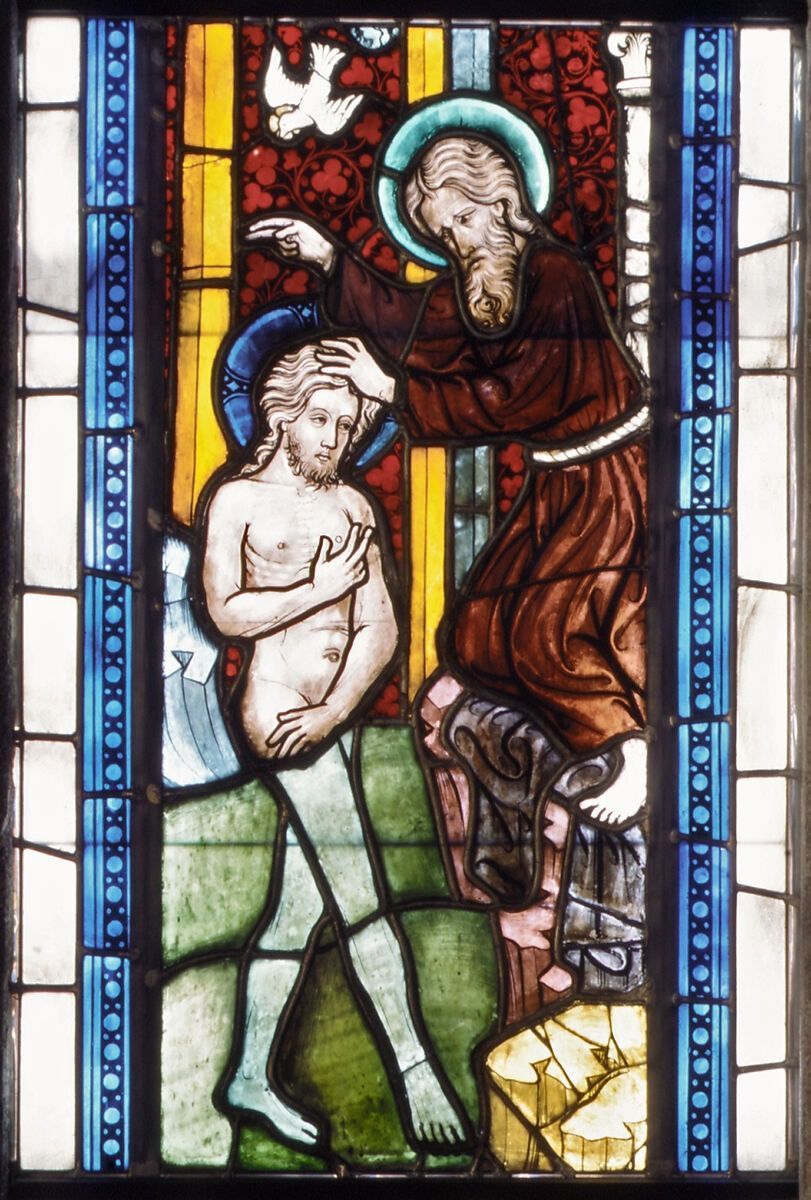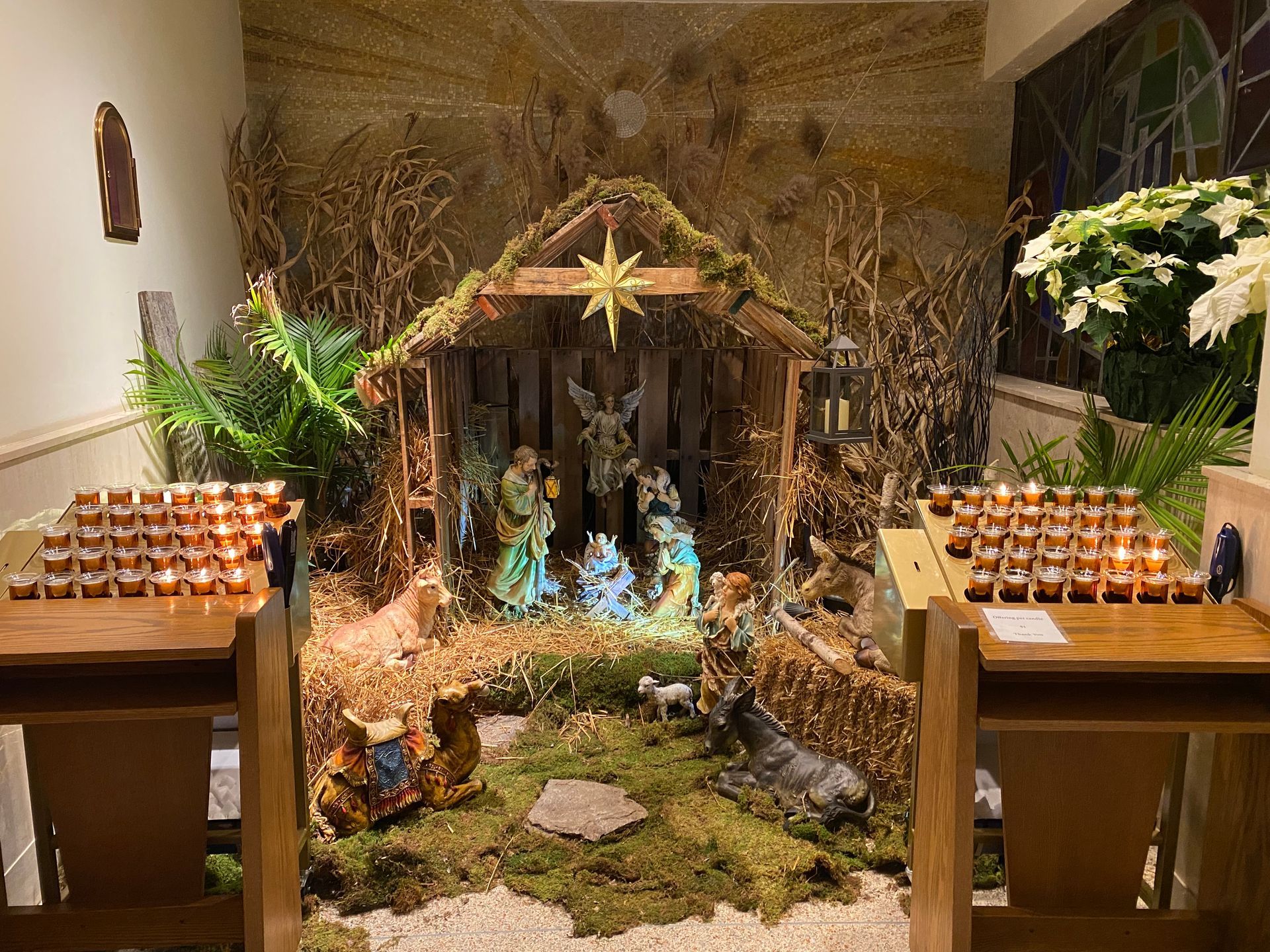A Hot Potato
Rev. Michael J.V. Clark • September 20, 2025

I met some of the richest women in Fairfield County last week; 8 of them, in fact. They live in a mid-century modern dwelling, which, I’ll be honest could do with some work, but some people like that vibe. Strange thing is, they only wear undyed woollen clothing, and they don’t wear shoes. Ever. They also beg for food - and if no-one gives them food, they go hungry. That’s right - they are cloistered nuns, and they just moved to Danbury, CT. But don’t you dare pity them - they are truly wealthy in what matters to God, and they run a kind of celestial money laundering scheme. Don’t worry, this is legit - it’s actually God’s idea. He says:
“Make friends for yourselves by means of unrighteous wealth, so that when it fails they may receive you into the eternal dwellings.”
We’re in the middle of the Lord’s teaching on wealth at the moment, and it can make us squirm. All of us - even us clergy, who don’t take vows of poverty. The parables and statements in Luke 15 and 16 are given in response to encounters with the Pharisees, who were at the same time interested in, but also skeptical of, the enigmatic rabbi from Galilee. They want to find a way to reject his ideas, but they can’t deny the crowds like what he has to say; whereas Jesus, for his part, wishes to challenge their immense pride.
We know this because of the commentary the Gospel writer gives immediately after this parable and before the next one:
“The Pharisees, who were lovers of money, heard all these things, and they ridiculed him. And he said to them, “You are those who justify yourselves before men, but God knows your hearts. For what is exalted among men is an abomination in the sight of God.”
These lines are a footnote which explains the context of Christ’s message. Remember that the Pharisees are not some kind of pantomime villain that we should cry ‘boo’ whenever we hear them mentioned. Jesus himself is more aligned with the Pharisaical tradition than any other sect in the 1st Century - he is more a reformer from within, than an enemy from without - which explains why he was called ‘rabbi’ and invited into the homes of leading Pharisees.
In the Parable, the unjust steward knows he’s about to be fired, and acts quickly to make his future secure. He writes off his master’s debtors’ debts. It’s a dishonest thing to do, fraudulent even, but in an unexpected twist his shrewdness is actually commended by the master. What do we make of this? Is Jesus commending his dishonesty? By no means. But he is commending his shrewdness.
The starting point to remember is that, in the teachings of Jesus, material wealth is not a sign of God’s favor. It is neither morally good, nor morally wicked. Instead it represents potential - we can make things happen by using resources wisely, or we can hoard them and simply please ourselves and our friends, but the source of wealth remains the same: it all comes from God and ultimately belongs to God, because he is the Creator of all that is. We are stewards of his gifts - and whilst he may endow some of us with the intellect to make good deals, and accumulate even more - that intellect is also God’s gift, and also belongs to God, because you belong to God, too.
The point of the parable is - whilst the unjust steward realizes he can deploy someone else’s wealth to make friends and gain access to earthly dwellings, by contrast a upright steward ought to realize he can deploy ‘unrighteous wealth’ to make friends and gain access to eternal dwellings. You just need to work out who these friends are. There are two ways to identify them: (1.) they’re not interested in the specification of your car, and (2.) they won’t invite you back.
But there’s more to the parable than stopping at the point we conclude the unjust steward is merely a baddie. First, he is shrewd at a personal cost to himself - St. Ambrose points out that his pay is on the basis of commission, so if he reduces the debt owed to his master, he gets paid less. He is thus investing in an unspecified future benefit, rather than his immediate salary. Secondly, rather than get mad, the master is impressed with his deviousness. St. Bede thinks the master represents God, but with all due respect to the venerable Doctor, I’m not so sure. There is ‘honor amongst thieves’ after all, and unjust stewards are typically employed by unscrupulous masters - so in reducing the debt owed to the master, the steward may, in fact, be redressing an injustice, rather than causing a new one.
The Lord is teaching us to keep our eyes fixed on heaven, where there are indeed mansions, and a Paradise beyond our every imagining. Nothing on this earth compare with the blessedness of sharing God’s own life. In order to do that, we must learn to prioritize the things that God prioritizes - and everything else will then be given to us as well. All of us are tempted by wealth - actually, rich and poor alike - but that temptation springs from a lack of Faith in eternal life, and eternal consequences for our actions. This world, this life, is not all there is - and we all will have to render an account of our stewardship. My advice to you then is to consider surplus wealth like a hot potato - if it stays in your hands it will burn you - get rid of it! Pass it on! Do good! Be extravagant! And make friends for yourselves with those who can never repay - those who waste their lives prioritizing the Kingdom of God - because they are the friends who will advocate for you before the throne of grace, and welcome you into the celestial dwellings.
Recent Posts










